When a person is arrested and charged with driving while impaired (DWI) in Minnesota, the charges can vary depending on the circumstances. In general, for drivers on a conventional driver’s license, those registering 0.08 while in control of a vehicle will face DWI charges. For a commercial driver, it is 0.04. In some instances, the driver is well over the legal limit. There can be enhanced charges for this, especially if it is twice the legal limit at 0.16.
Criminal penalties and administrative sanctions for a BAC of 0.16
The consequences for registering double the legal limit can be severe. For a first offense, it is a gross misdemeanor that can result in one year in jail and/or a fine of $3,000. Some might have a child in the vehicle at the time of the arrest. The criminal penalties for a first offense are the same if there is a child in the vehicle. Administratively, having a child in the vehicle can lead to a loss of driving privileges for one year or the requirement to have an ignition interlock device installed on the vehicle. The license plates might be impounded and the vehicle is subject to forfeiture.
Subsequent offenses will make the potential consequences harsher. A second offense has the same criminal penalties, but the administrative penalties are doubled from what they were with a first offense with a child in the vehicle. These will be assessed for a second offense whether there was a child in the vehicle or not and the driver is at 0.16 BAC.
For a third offense, the criminal penalties are the same as for the first and second offense at 0.16, but will be assessed if the driver is at 0.08. The administrative penalties include a driver’s license cancellation because of danger to the public; three years of testing to ensure the driver has not used drugs or alcohol before the ignition interlock can be removed; one year of a limited license with the ignition interlock, provided the person is in treatment; and two years of the ignition interlock after treatment. A fourth offense can include a felony charge, seven years in jail and/or a $14,000 fine.
Combating DWI charges may require qualified representation
When a person registers 0.16, it is imperative to tailor a defense strategy accordingly. DWI penalties not only cause problems personally, but professionally and financially as well. People can be incarcerated, jobs may be lost, insurance rates will inevitably rise and other problems can present themselves. Regardless of the situation, there may be options available. Calling the evidence into question or seeking a reduction in charges might be avenues to explore. Having experienced advice is wise from the beginning.

